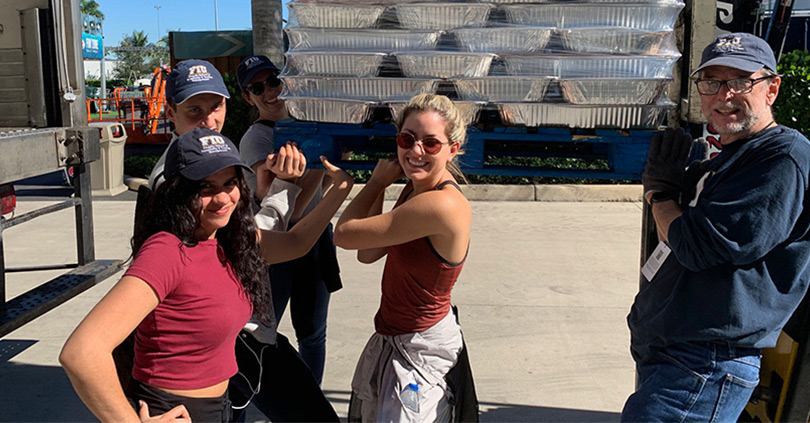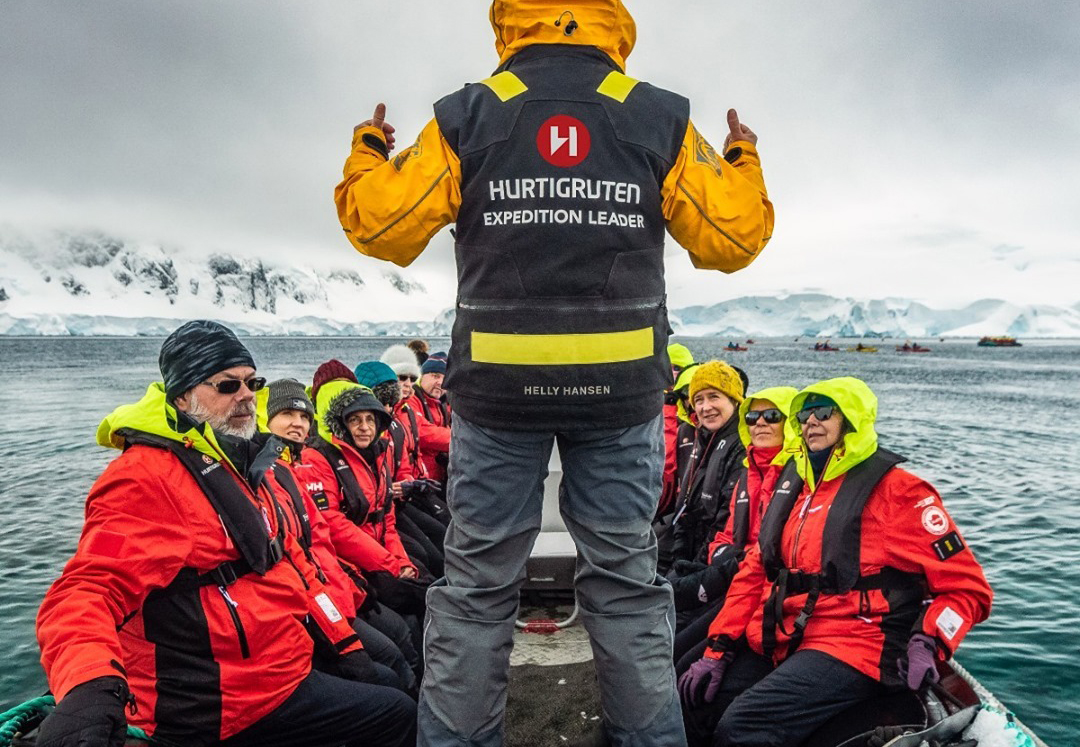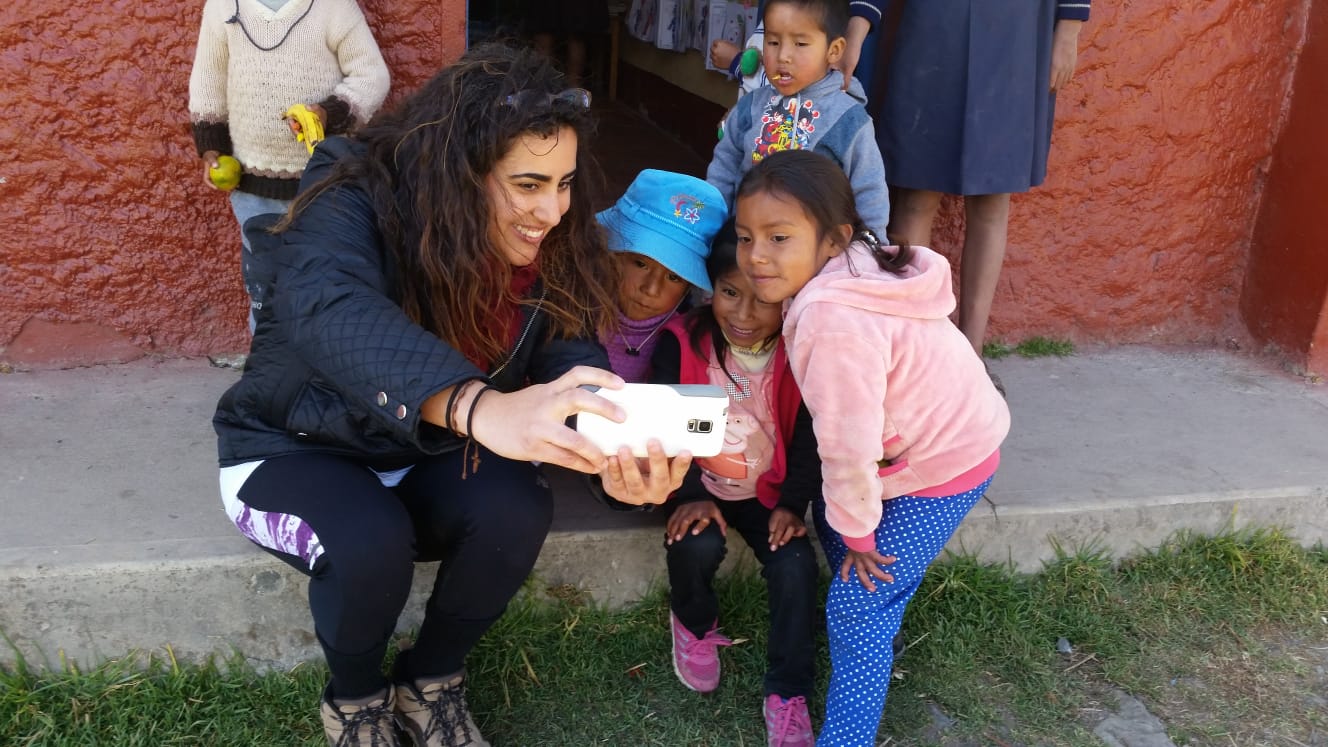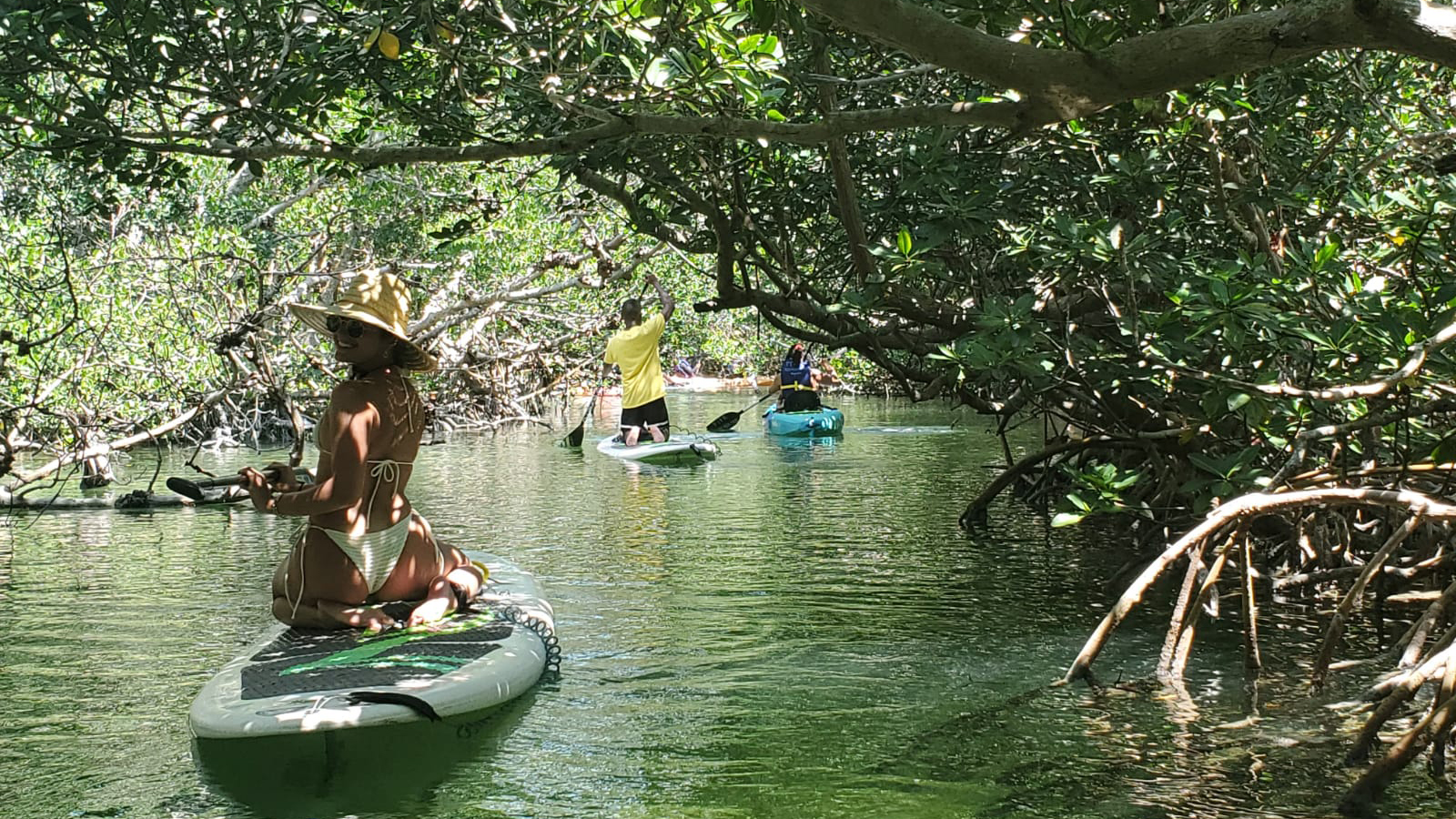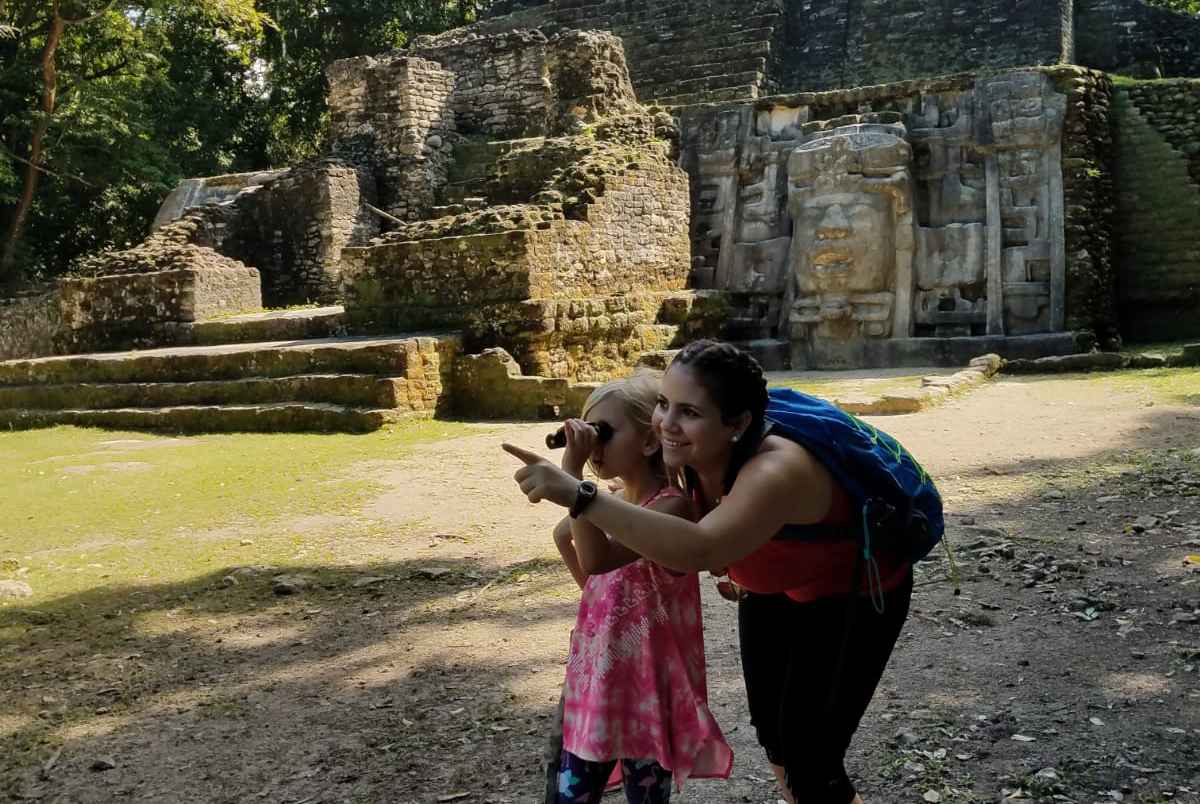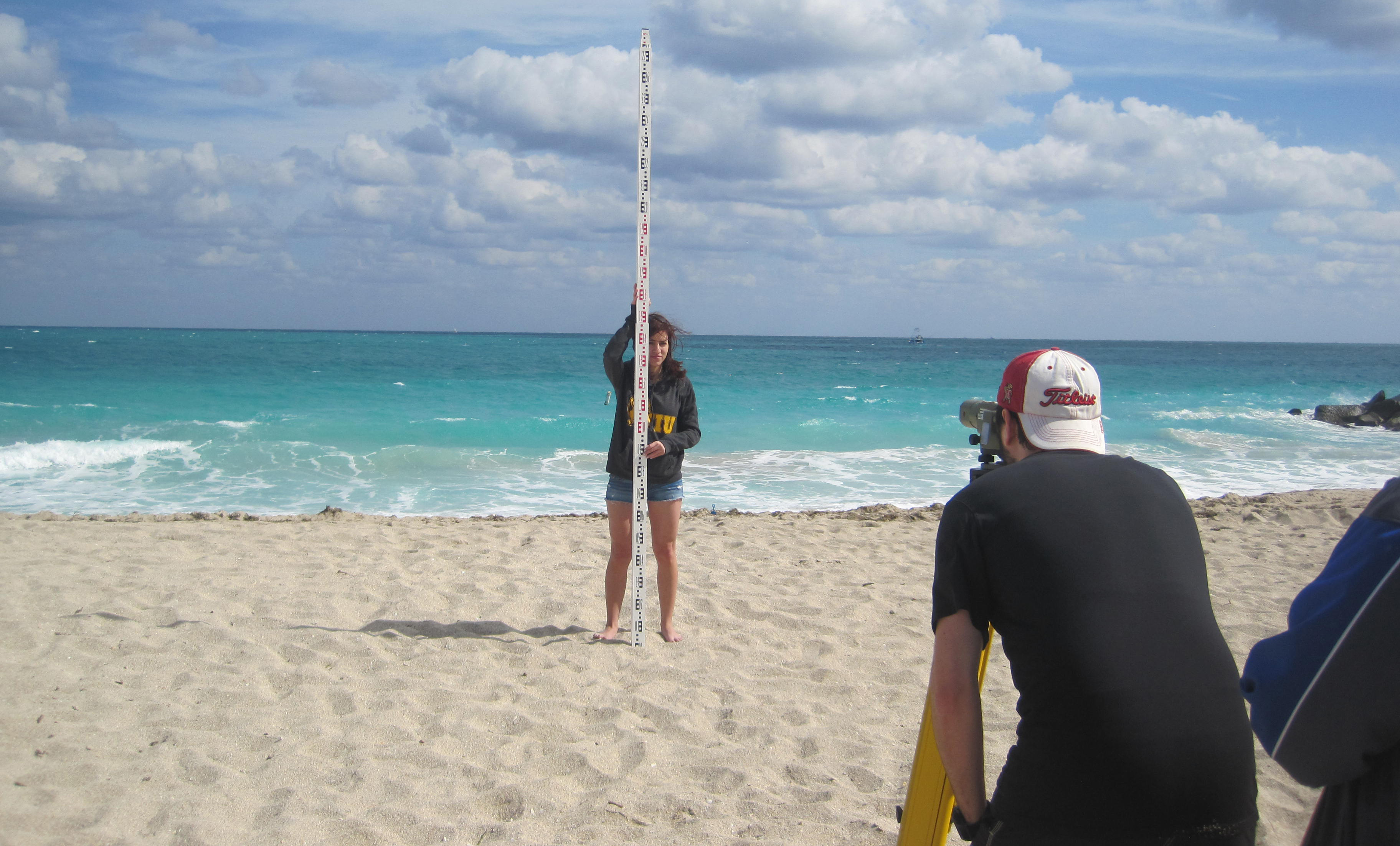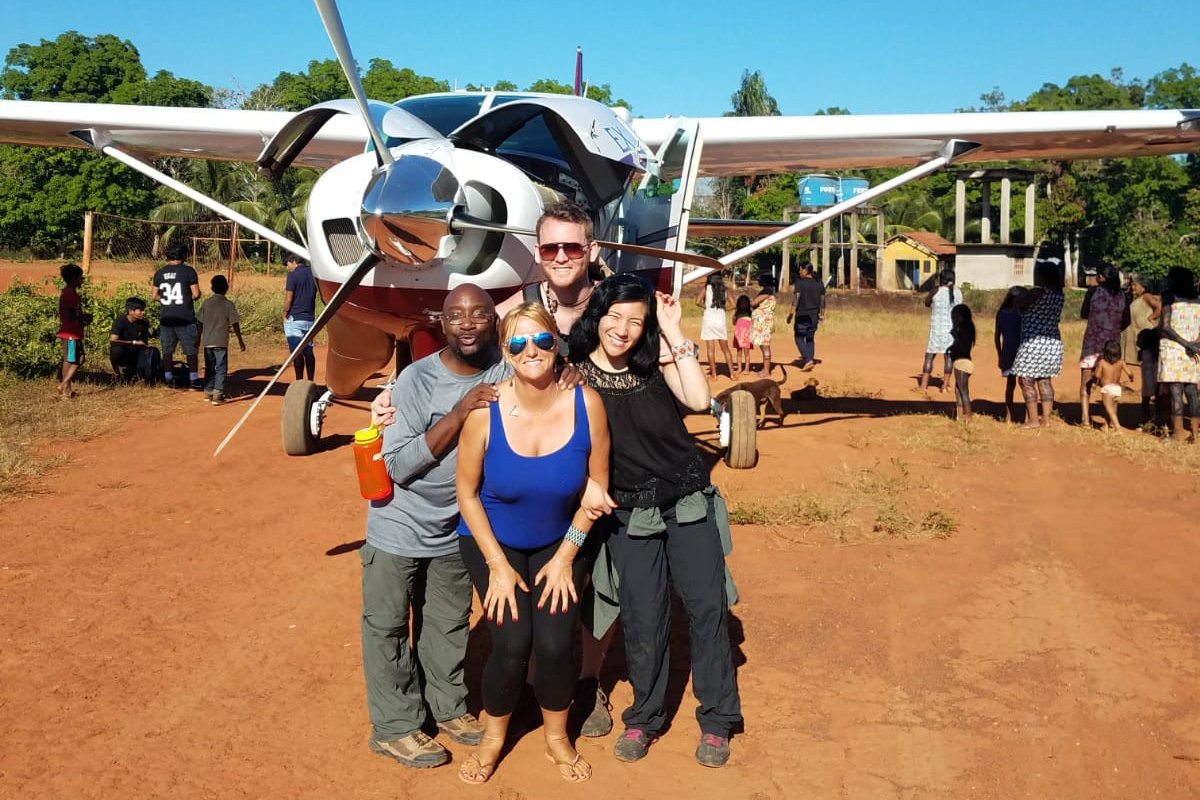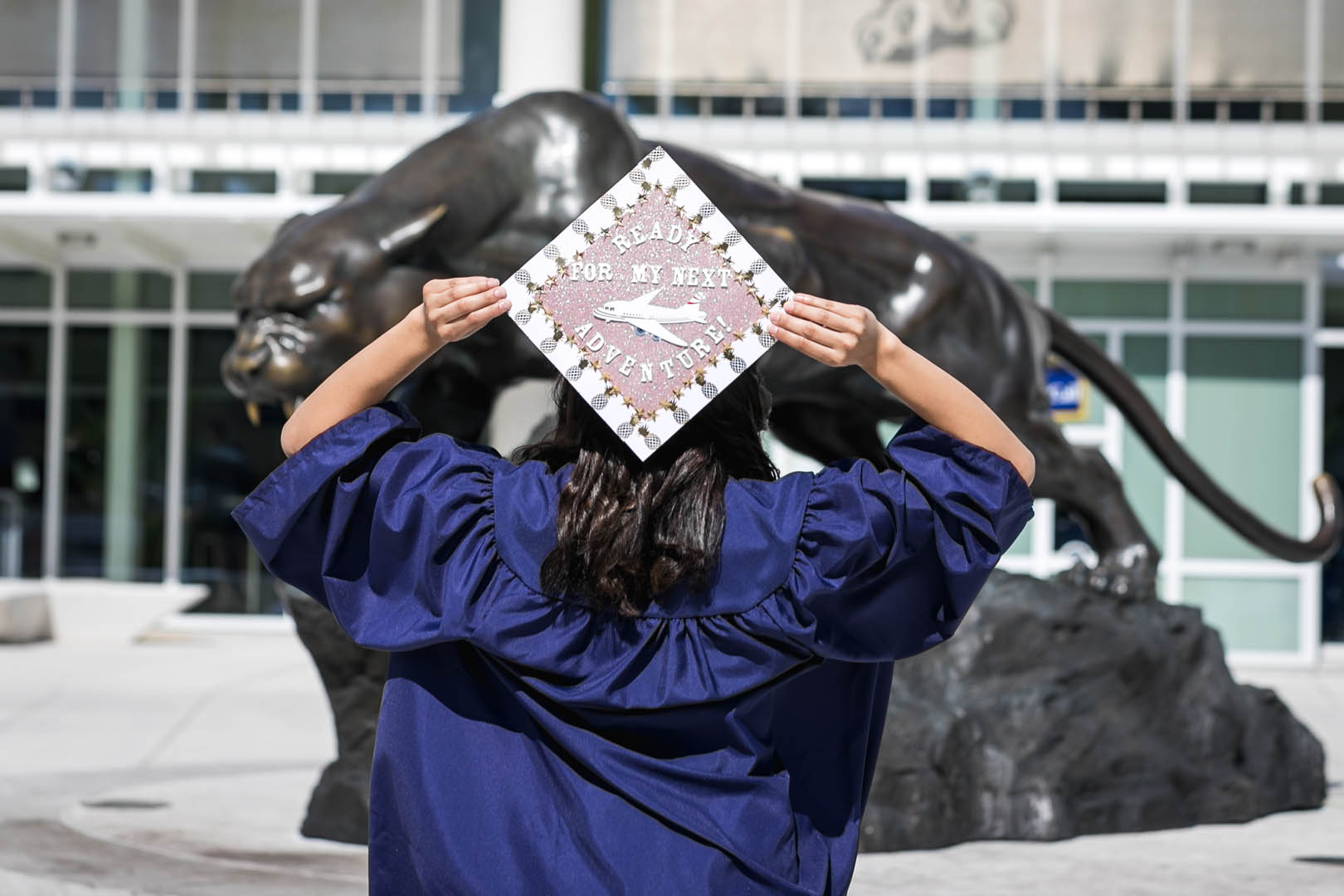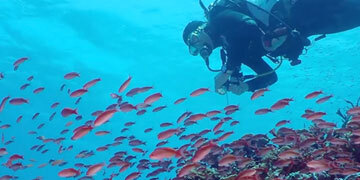Degree Title
Bachelor of Arts
Fall 2024 Start Date:
August 26, 2024
Spring 2025 Start Date:
January 6, 2025
Overview
Worldwide, the impacts of tourism on the natural environment are under increasing scrutiny and demands for restraint and solutions. The World Tourism Organization as well as the World Travel and Tourism Council have explicitly called for increased focus on sustainability when creating policies and managing global tourism. There is an urgent need to protect the resources that attract tourists to destinations around the globe. The recent pandemic has caused the world to notice that destinations such as Venice and Amsterdam, if allowed to recover from over-tourism through more sustainable practices, can and will do so. In our State of Florida, there is increased pressure to protect our natural attractions which include the state’s 825 miles of beaches, the Everglades, the Keys, coral reefs, springs and mangroves. Other alarming events such as red tide, climate change and sea-level rise, and extreme storm events have all raised awareness of the vulnerability of the tourism industry both locally and abroad.
This innovative degree recognizes the importance of sustainable operations in the tourism industry today, its impacts on the planet, and the increasing demand for a more sustainable approach to managing hospitality and tourism businesses. This unique, fully-online program, offered through the Chaplin School of Hospitality and Tourism Management, is an interdisciplinary collaboration with the Department of Earth and Environment of the College of Arts, Science and Education and features a blended curriculum composed of the most-relevant existing courses from each department as well as a host of new courses specifically designed for the degree.
Students pursuing this degree will acquire the knowledge and tools needed to become industry leaders in the management of sustainable tourism standards that will help protect the world’s natural and cultural resources and maintain them intact for future generations. Students will learn to apply these skills and lead through advocacy, conservation and community partnerships. Topics covered include socioeconomic, environmental and cultural impacts with respect to responsible business practices and local governance. In a nutshell, the overarching thrust of the program is to teach students how tourism can adapt to and mitigate climate change and become a key sector in the transition to low-carbon economies.
-
Why Apply?
Major American hospitality and tourism corporations including Hilton, Carnival, and others, have aligned their sustainability programs with the UN’s Sustainable Development Goals (SDGs), making 2030-target commitments to reduce their environmental footprints and setting social-impact goals. Other global brands like Inter-Continental, Air France/KLM and Sodexho rigorously compete for highest positioning on the annual Dow Jones ranking of SP 600 corporations for their environmental sustainability leadership. The need to balance environmental protection with human recreational use has become urgent and requires a workforce that is trained in understanding the business of tourism as well as how to think long-term to conserve spectacular natural places for future generations of tourists.
The primary purpose of the B.A. in Global Sustainable Tourism degree program is to provide the global hospitality and tourism industry with sustainability-oriented managers who will know how to balance travelers’ desires for memorable experiences while protecting nature, culture, communities, and the planet. Students will emerge prepared to work in promoting transitions to sustainability in tourism for business, government and non-governmental organizations anywhere in the world.
Job Outlook
A Green Lodging Trends survey (2019) indicated that 65 percent of hospitality and tourism businesses employ a dedicated sustainability coordinator and as many as 90 percent are conducting staff training in sustainability either with their own staff or through hired consultants and training experts. The types of businesses include tour companies, hotels, airlines, cruise lines, convention and visitors bureaus, theme parks, festivals, destination management companies and transportation companies, among others. The Bureau of Labor Statistics (BLS) reports annual salaries in 2019 averaged $71,360 per year for sustainability professionals, although not specific to the sustainable tourism segment, with a projected growth of 8 percent (double the national average) for specialists.
Partnerships
The Chaplin School, named for Mr. Harvey Chaplin, Chairman of Southern Glazer’s Wine and Spirits, annually co-produces the Food Network and Cooking Channel South Beach Wine and Food Festival (SobeWFF) along with Southern Glazer’s. The event, largest of its kind in the U.S., generates experiential learning opportunities for as many as 1200 FIU students each year. Additionally, the Chaplin School has developed many other long-standing relationships with major global hospitality and tourism corporations such as Carnival Cruise Lines (funder of the Carnival Gold Scholars and the Carnival Student Center on our BBC campus) and Marriott International (namesake for the school’s Marriott Tianjin China Program), along with some well-known names among food and beverage producers to the industry such as Bacardi, Badia and Quirch that have greatly contributed to the school’s Restaurant, Culinary and Spirits Management programs. Global corporate partners have been central to efforts to expand funding opportunities to students, serve the local community, provide employment experiences, and deliver the resources needed to advance the quality of education and service provided to students and alumni. Building meaningful relationships with industry organizations has been an integral part of the Chaplin School’s highly-successful existence, earning the #1 ranking for U.S. online hospitality and tourism programs for six years in a row.
-
Courses
A total of 120 credits are required for the Bachelor of Arts including 60 program credits and 60 credits to meet University Core Curriculum requirements. The 60 program credits include:
Lower Division Required Courses (5 credit hours)
HFT 1102 - Foundations and Pathways in Global Sustainable Tourism - 1
EVR 1001 - Introduction to Environmental Science - 3
EVR 1001L - Introduction to Environmental Science - Lab - 1
Upper Division Required Courses (34 credit hours)
HFT 3705 - Global Travel and Tourism Development - 3
HFT 3103 - Global Sustainable Tourism Development in Natural Resources - 3
EVR 3013 - Ecology of South Florida - 3
EVR 3013L - Ecology of South Florida - Lab - 1
HFT 3703 - Adventure and Ecotourism (GL) - 3
HFT 3793 - Sustainability and Well-being in Global Societies – 3
HFT 4561 - Destination Marketing and Management for Cultural Heritage – 3
EVR 4440 - Beaches and Tourism – 3
EVR 4410 - Global Perspectives on Water & Environment - 3
EVR 4112 - Climate Change Policy - 3
EVR 4321 - Sustainable Resource Development – 3
HFT 4737 - Senior Seminar in Global Sustainable Tourism – 3
Electives (21 credit hours required)
In addition to the above requirements, students must complete a minimum of 21 elective credits from the following list of courses. Substitutions are permitted only with approval of a Chaplin School of Hospitality and Tourism Management academic advisor.
EVR 1017 – Climate Change, the Global Environment and Society - 3
IDS 1231 - Local and Regional Sustainability - 3
ECO 2023 - Principles of Microeconomics - 3
STA 2023 - Statistics for Business and Economics* - 3
*Subsequent credit for STA 2122 or STA 3111 will not be granted. Prerequisite: High school algebra.
HFT 3033 - Sustainability Team Management - 3
HFT 3073 - Social Responsibility in the Hospitality and Tourism Industry (GL) - 3
MMC 3303 - Global Media and Society (GL) - 3
MMC 3650 - Media and Sustainability - 3
HFT 3692 - Ocean and Coastal Law for the Hospitality Industry - 3
HFT 3930 - Intensive Pod in Hospitality Industry* – 1
* Course may be repeated up to three times with change in content.
EVR 3931 - Topics in Environmental Studies*– 3
*Course may be repeated with change in content.
EVR 4274 - Sustainable Agriculture (GL) - 3
HFT 4708 - Coastal and Marine Tourism - 3
EVR 4905 - Research and Independent Study* - variable credit hours
*with permission of instructor
EVR 4941 - Internship* – 3
or
HFT 4945 – Advanced Internship in Hospitality/Tourism Management* – 3
*Students may choose either EVR 4941 or HFT 4945 for their internship experience with approval of the Faculty internship supervisor (for EVR 4941) or Academic Advisor (for HFT 4945).
HFT 4955 - Study Abroad: Global Sustainable Tourism - 3
-
Requirements
To ensure every student’s success, we have certain admissions requirements for each of our programs. To help you through the application process, our enrollment advisors are available to answer your questions and guide you every step of the way.
FIU Admission Requirements
Applications are accepted for Spring, Fall and Summer terms.
Steps to Apply
Freshman Students
Please submit the following:
- Online application
- $30 application fee.
- Official SAT, ACT and/or CLT scores.
- Official high school transcripts.
Transfer Students
Please submit the following:
- Online application
- $30 application fee.
- Official college transcripts.
- If you have less than 60 transferable college credits, you must also submit official high school transcripts and SAT, ACT and/or CLT scores in addition to any transcripts from postsecondary schools to the Office of Undergraduate Admissions.
International Students
In addition to the above requirements, international applicants should submit:
- Official English Language Proficiency exam scores (TOEFL or IELTS).
- NACES official course-by-course evaluation and translation of college transcripts.
- If you have less than 60 transferable college credits, you must also submit official high school transcripts with translation.
- A minimum paper-based TOEFL score of 550, an internet-based (ibT) score of 80 or a minimum IELTS of 6.50 overall is required for international applicants.
Program Admission Requirements
Applicants to the Chaplin School of Hospitality and Tourism Management must submit an Undergraduate Application for admission to the University and must follow the regular University admissions procedures described in the FIU Undergraduate Admissions website (click "How to Apply"). Applicants must be eligible for admission to the University before being accepted to the School.
Any student who has completed two years of college (60 transferable semester hours) may apply for admission as a transfer student to the upper division program. A minimum 2.00 GPA is required for transfer student. Admissions will review your official transcripts for transfer credits upon submission of your application. Domestic students may enroll on either a full-time or a part-time basis; International students must enroll full-time (at least 12 credits per semester). Students with less than 60 transfer credits are subject to freshman admission criteria.
All students are required to meet the university’s core curriculum requirements prior to graduation. It is not necessary to have been previously enrolled in a hotel, restaurant or tourism, or environmental studies program. The curriculum will provide the specialized professional education to equip the student for a career in sustainable hospitality and tourism management. Students with training in liberal arts, business, education, or technology, for example, are qualified to enroll in the program.
A maximum of 60 lower division undergraduate semester credits may be transferred from a junior or community college program. More credits may be transferred from a related upper-division program at a four-year institution.
Undergraduate applicants are advised to respect the Admissions Deadlines of the Undergraduate Admissions Office.
Admission Documents
To complete the online undergraduate programs admissions form, select your program from the application form. You may complete the online application and submit it, even before taking any entrance exams. All supporting admission documents may be sent to:
- Florida International University
- Office of Undergraduate Admissions
- P.O. Box 659003
- Miami, FL 33265-9003
- USA
FIU also accepts transcripts electronically via:
- Faster (All FL public institutions)
- Naviance (Typically used by private high schools)
- SMART/Joint Service Transcript – Military records
*Meeting the university minimum requirements does not guarantee admission
-
Tuition and Aid
We’re thrilled that you’re considering online education and want you to know exactly what to expect for tuition and fees. Education is an investment in your future. Use the following student tuition and fees calculator to determine your costs.
-
Top Faculty
Faculty members teaching in the Global Sustainable Tourism (GST) program combine strong academic credentials with excellent teaching skills and extensive, executive-level industry and organizational experience that will inspire students to become leaders in their fields. They value student exploration, serving as mentors and models who challenge and inspire students while preparing them with sound approaches to help encourage opportunities and innovation.
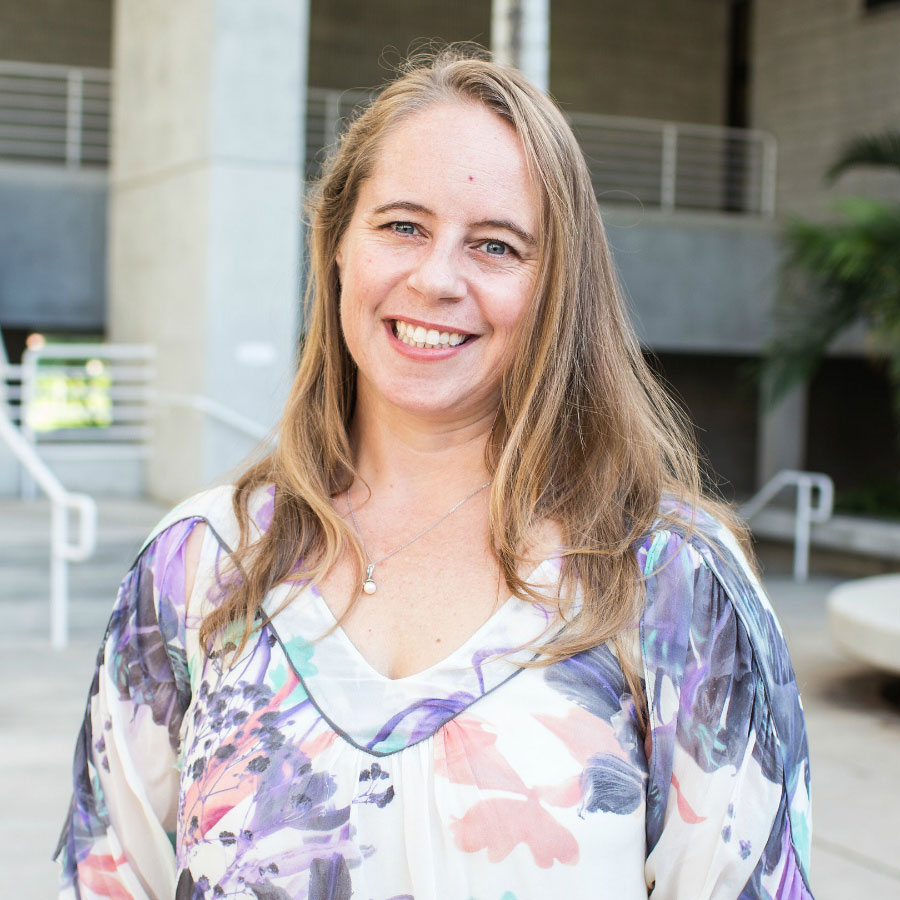
Dr. Elizabeth Anderson is a freshwater conservation ecologist and an assistant professor in the Department of Earth and Environment. Her research explores the natural history of tropical freshwaters of Central America, the Andean Amazon, and East Africa, and the effects of human activities, including tourism, on these ecosystems. Her research has been supported by the MacArthur Foundation, the Tinker Foundation, the U.S. Agency for International Development, and National Geographic. Dr. Anderson has a PhD in Ecology from the Odum School of Ecology at the University of Georgia. She has worked for the Organization for Tropical Studies at La Selva Biological Station, Costa Rica; and as Conservation Sustainability Director at The Field Museum of Natural History in Chicago, USA. At FIU, she has worked with the USAID-funded Global Water for Sustainability Program to support pilot projects for integrated water resources management in South America, East Africa and India. Between 2013-2016, Dr. Anderson served as the Director of International Research Programs in the School of Environment, Arts and Society at FIU. Dr. Anderson is a three-time recipient of a Fulbright from the U.S. Department of State, including a Fulbright Research Award to Costa Rica in 2001; a Fulbright Scholar Award to Peru in 2014; and a Fulbright Specialist Award to Colombia in 2015. Her course Integrated Solutions for Water in Environment and Development will be a key component of the senior year of the GST degree program.
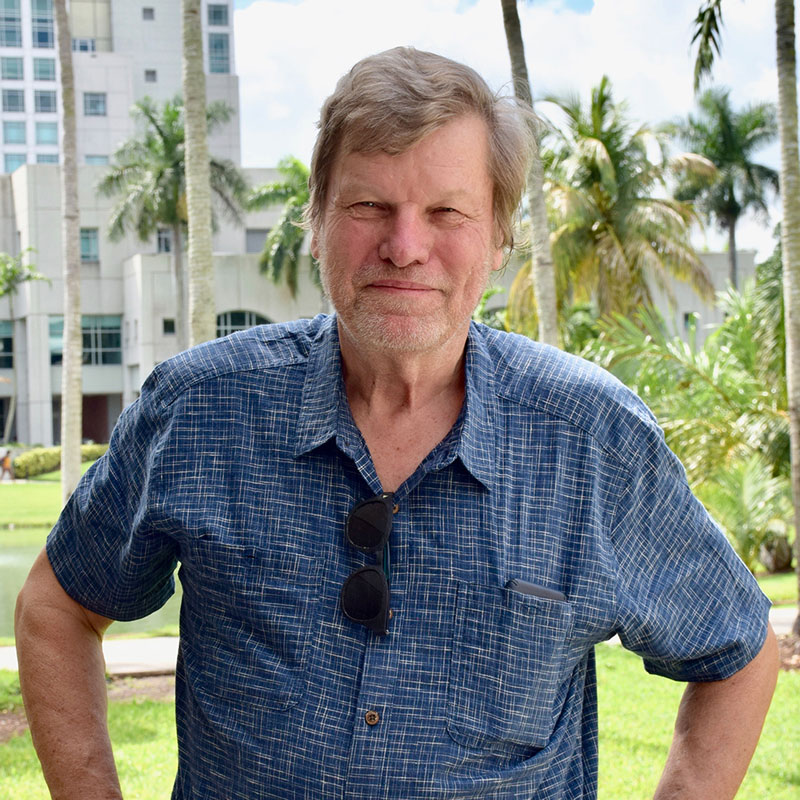
Dr. David Bray, serving as co-director of the GST program, is an anthropologist and professor in the Department of Earth and Environment with decades of global experience in environmental sustainability. Before coming to FIU, Dr. Bray served with the Inter-American Foundation, a U.S. government foreign assistance agency. In his 11-year stint with the IAF he worked in Paraguay, Argentina, Uruguay and Mexico and was a member of the Tropical Ecosystems Directorate of the US Man and the Biosphere Program. Dr. Bray left the IAF to take up the position of professor and chair of the Environmental Studies Department at FIU. Dr. Bray’s research has attracted funding from the Fulbright Program, the Ford Foundation, the Hewlett Foundation, the Tinker Foundation, and the US Agency for International Development. He has also consulted for the MacArthur Foundation, the Ford Foundation, and the U.S. Fish and Wildlife Service and is the lead editor of the book The Community Forests of Mexico. He is currently carrying out research and action projects in community forest management in Mexico and Central America as he pursues interests in natural resource and ecosystem management across Latin America and globally.
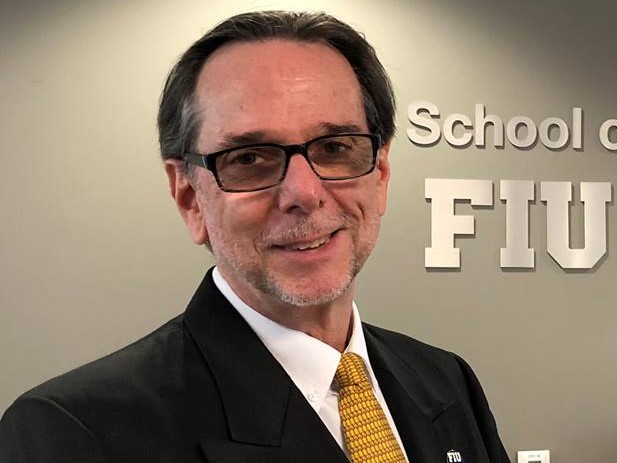
Dr. John D. Buschman teaches global hospitality, tourism, and events management courses at FIU’s Chaplin School of Hospitality and Tourism Management and is a co-director of the GST program. His three decades of professional experience in the global hospitality and tourism industry included working in everything from an island eco-lodge in Brazil, to major resort hotels in Mexico, the Caribbean and California, to global tourism companies throughout Latin America, Europe, Africa and the Mediterranean. Dr. Buschman has served on the industry advisory boards of Maritz Travel and Networld, Inc. and on the boards of directors of the Florida Food Policy Council, the Society of Incentive Travel Excellence and the Sustainable Events Network, Florida and Caribbean. Since coming to FIU, Dr. Buschman’s work has centered on food waste reduction and recovery from hospitality, tourism and events operations, and the redistribution of food to people in need. Students in his course Social Responsibility for the Hospitality Industry have recovered more than 250,000 meals from events like the South Beach Wine & Food Festival and the NFL Super Bowl, served more than 50,000 meals to the homeless and redirected over 1 million pounds of food toward food-insecure populations. Drawing from his global industry experience, Dr. Buschman created the new course Destination Marketing and Management for Cultural and Heritage Tourism specifically for the GST degree.

Dr. Stephen Leatherman a.k.a. “Dr. Beach”, is a professor in the Department of Earth & Environment, known globally for his work on beaches, beach quality and the topics that affect it such as storm impacts, erosion and sea-level rise, the effects of over-population and pollution, among many others. Dr. Leatherman has authored or edited over 20 books, including Sea Level Rise: Causes and Consequences; Barrier Island Handbook; Overwash Processes; Cape Cod: From Glaciers to Beaches; and America’s Best Beaches, National Geographic’s Field Guide to the Water’s Edge. He is best known, however, for his annual list of the “Top Ten Beaches in the U.S.”. Dr. Leatherman has provided expert testimony before the U.S. Congress and has appeared on most every major TV news program in the country. He also served as the on-screen host and co-producer of the 1992 film “Vanishing Lands”, winner of three international film awards, including the Golden Eagle. He has been quoted in dozens of top news publications and his more than 200 academic journal articles and technical reports have made him the go-to expert on the subject. Dr. Leatherman has created a totally-new course called Beaches and Tourism , specifically to be able to share his expertise with the students enrolled in the GST degree program.

Dr. Carolin Lusby is a Fulbright Specialist and an associate professor in tourism at the Chaplin School of Hospitality and Tourism Management, and is a co-director of the GST program. She holds a PhD in Tourism and Natural Resources from the University of Florida and was recently granted a Fulbright Scholar Award in Brazil, where she does frequent consulting work in community-based tourism and collaborates with Brazilian universities in various research projects. A certified auditor in sustainability in tourism, Dr. Lusby is passionate about travel and connecting people to people while preserving natural and cultural resources. She is the author of the book: "Destination Unknown-Sustainable Travel and Ethical Tourism," and the chair of the special interest group in tourism of the World Leisure Organization. Her research and outreach are markedly international and driven by her desire to solve problems and create good for communities around the world. Her research output includes various grants from the US Department of State, publications, presentations, and multiple book chapters. As a certified Scuba instructor, she is passionate about sustainability in marine tourism. Trained as a guide and experiential educator, Dr. Lusby enjoys taking groups abroad to learn about sustainable tourism practices “hands on”. Employing her extensive research and field experience, Dr. Lusby has developed several exciting new courses for the GST degree program including Global Sustainable Tourism Development in Natural Resources , and Sustainability and Well-being in Global Societies .
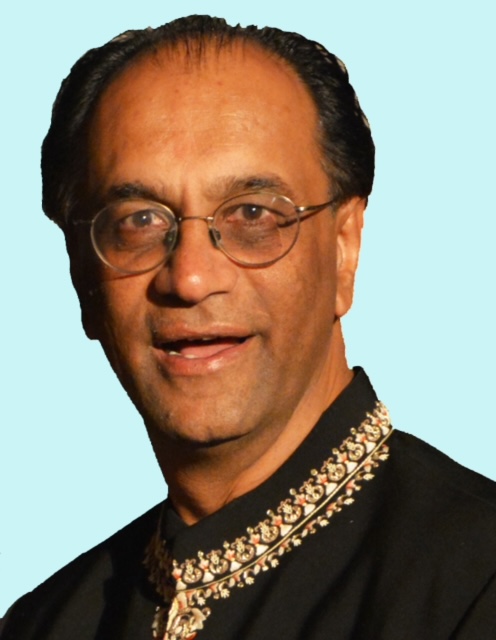
Hitesh Mehta, the Executive in Residence at the Chaplin School of Hospitality and Tourism Management, combines extensive real-world professional and academic experience. As an award-winning sustainable tourism and ecotourism consultant, Prof. Mehta's work spans over sixty-seven countries across six continents. Since 2000, he has been an adjunct Professor at the Chaplin School, teaching Sustainable Tourism Practices, Authentic Ecotourism, and Ecoresort Planning. Recognized as a leading authority in eco- and sustainable tourism, Prof. Mehta's accolades include induction into the Sustainable Tourism Hall of Fame by Sustainability Leaders United in 2024, the United Nations (UNEP/GFHS) "Outstanding Achievement Award" in 2015, and recognition as one of the Sustainable Tourism Pioneers by National Geographic in 2006. As Executive in Residence, Prof. Mehta promotes the Global Sustainable Tourism program, aids in curriculum development by providing insights to ensure alignment with industry needs.
120 Credits Required
235.57 Per Credit Hour (In-State) + Fees
648.87 Per Credit Hour (Out-of-State) + Fees
* Total tuition and fees are subject to change.
Highlights
Fully Online Degree
Every online student is paired with a success coach
Program starts: Fall, Spring, Summer
Become part of an exceptional community and make the most of your education. Join the Honors College.
This program grants you access to Career Engage and associated scholarships.

